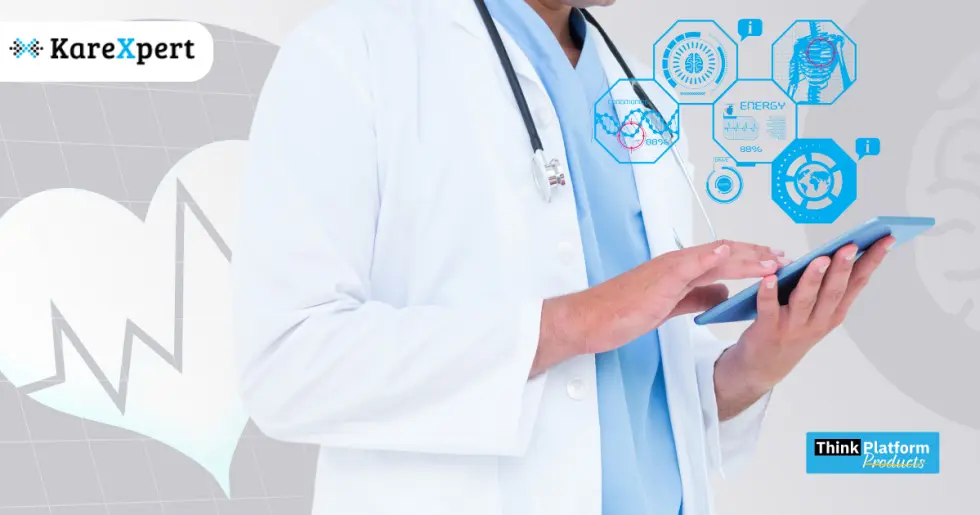Streamline Your Records with Electronic Health Record Software | Boost Efficiency & Accuracy

In today’s digital age, almost every aspect of our lives has been transformed by technology, and the healthcare industry is no exception. Electronic Health Record (EHR) software is a digital solution designed to streamline medical records and simplify the management of patient data. With the introduction of EHR software, healthcare providers can manage patient information more effectively and provide better care to their patients. In this article, we’ll explore the benefits of EHR software and how it can help healthcare providers to boost efficiency and accuracy.
What is Electronic Health Record Software?
Electronic Health Record (EHR) software is a digital solution that stores and manages patient information in an electronic format. This software provides healthcare providers with a central location to store and manage patient data such as medical history, lab results, medication lists, and treatment plans. The data is securely stored in a digital format, making it easy to access and share with other healthcare providers.
Benefits of EHR Software
Electronic Health Records software has numerous benefits for healthcare providers, including:
1.Increased Efficiency
EHR software streamlines the management of medical records, eliminating the need for paper-based records. This means that healthcare providers can access patient information quickly and easily, without having to spend time searching through paper records. EHR software also eliminates the need for manual data entry, reducing the risk of errors and improving efficiency.
2.Improved Accuracy
EHR software ensures that patient information is accurate and up-to-date. The software automatically updates patient records with new information, such as lab results and medication changes, ensuring that healthcare providers have access to the most recent information when making treatment decisions.
3.Enhanced Communication
EHR software enables healthcare providers to communicate more effectively with patients and other healthcare providers. The software allows providers to share patient information quickly and easily, improving collaboration and coordination of care.,/p>
4.Better Patient Care
EHR software helps healthcare providers to provide better care to their patients. With access to complete and accurate patient information, healthcare providers can make more informed treatment decisions and provide personalized care to each patient.
5.Improved Patient Safety
EHR software reduces the risk of errors and improves patient safety by providing healthcare providers with accurate and up-to-date patient information. The software also alerts healthcare providers to potential drug interactions and other safety concerns, ensuring that patients receive the safest and most effective treatment.
How to Choose the Right EHR Software?
Choosing the right EHR software can be a daunting task. Here are some factors to consider when selecting an EHR software:
1.Functionality
Make sure the EHR software has all the features and functions necessary to meet your needs. The software should be able to manage patient records, schedule appointments, process payments, and generate reports.
2.Usability
The EHR software should be easy to use and navigate. It should have an intuitive user interface and require minimal training to use.
3.Integration
The EHR software should integrate seamlessly with other software and systems used by your practice. This includes billing and payment systems, laboratory systems, and electronic prescribing systems.
4.Security
Security is crucial when it comes to electronic health records. Make sure the EHR software has adequate security measures in place to protect patient information.
5.Customer Support
The EHR software should come with comprehensive customer support, including technical support and training.
Electronic Health Records software is a game-changer for the healthcare industry. It streamlines the management of medical records, improves accuracy, enhances communication, and ultimately leads to better patient care. When choosing an EHR software, consider the functionality, usability, integration, security, and customer support. With the right EHR software, healthcare providers can streamline their records, boost efficiency and accuracy, and provide better care to their patients. By investing in EHR software, healthcare providers can keep up with the latest technology trends and remain competitive in the industry.
Implementing EHR software may require an initial investment of time and money, but the benefits far outweigh the costs. Not only does it improve the quality of care, but it also saves time and money in the long run. The transition to electronic records may take time, but it’s a worthwhile investment in the future of healthcare.
In summary, Electronic Health Records software is a valuable tool for healthcare providers to manage patient records efficiently and accurately. The benefits of implementing EHR software are numerous, including increased efficiency, improved accuracy, enhanced communication, better patient care, and improved patient safety. When selecting an EHR software, it’s essential to consider functionality, usability, integration, security, and customer support to ensure that the software meets the needs of your practice. With the right EHR software, healthcare providers can streamline their records, boost efficiency and accuracy, and provide better care to their patients.
